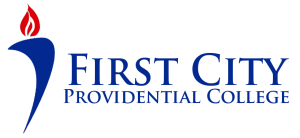This course deals with the study of principles of the time of money and equivalence; basic economic study method; decisions under certainty; decisions recognizing risk; and decisions admitting uncertainty.
This course deals with: Measurement of distance and distance corrections, the use of surveying instruments, area computations, balancing the traverse, elevation determination, and leveling. Stadia surveying, topographic surveying, triangulation and trilateration, missing data, irregular boundaries, and global positioning system. Proper handling and utilization of surveying instrument will be taken. Students will learn how to perform measurement of distance and apply distance corrections, use and proper handling of surveying instruments, and perform calculations related to area computations, latitude and departure computations, DMD and DPD methods of land area determination, balancing the traverse, elevation determination, and leveling. Perform stadia surveying, topographic surveying, triangulation and trilateralization, missing data computation, and subdivision of lots. Laying out of horizontal curves, compound curve, reversed curve, spiral curve and mass diagramming.
The course focuses on the environmental systems in buildings. Lecture discussions include building electrical systems, natural and artificial lighting, and building telecommunications. Reducing operational loads and integrating high performance energy systems into building offers solutions towards achieving a sustainable and secure energy future. Engineers must understand the interrelationship between a building and its subsystems and need sufficient knowledge of building systems and design alternatives to recommend appropriate solutions that suit the site, climate, building type, and occupants. They must coordinate the work of the engineering disciplines that carry the sustainability concept forward through building design, construction, commissioning, operation and, ultimately, demolition, recycling, and reuse.
The course focuses on the environmental systems in buildings. Lecture
discussions include building electrical systems, natural and artificial lighting, and building
telecommunications. Reducing operational loads and integrating high performance energy
systems into building offers solutions towards achieving a sustainable and secure energy
future. Engineers must understand the interrelationship between a building and its
subsystems and need sufficient knowledge of building systems and design alternatives to
recommend appropriate solutions that suit the site, climate, building type, and occupants.
They must coordinate the work of the engineering disciplines that carry the sustainability
concept forward through building design, construction, commissioning, operation and,
ultimately, demolition, recycling, and reuse.
The course analyzes Philippine history from multiple perspectives through the lens of selected primary sources coming from various disciplines and of different genres. Students are given opportunities to analyze the author's background and main arguments, compare different points of view, identify biases and examine the evidences presented in the document. The discussions will tackle traditional topics in history and other interdisciplinary themes that will deepen and broaden their understanding of Philippine political, economic, cultural, social, scientific and religious history. Priority is given to primary materials that could help students develop their analytical and communication skills. The end goal is to develop the historical and critical consciousness of the students so that they will become versatile, articulate, broad- minded, morally upright and responsible citizens. This course includes mandatory topics on the Philippine Constitution, agrarian reform, and taxation.
This course is designed to equip college students from diverse academic backgrounds—including Education, Hospitality and Restaurant Management, Tourism Management, Office Administration, and Engineering—with advanced English language proficiency and crucial cross-cultural communication skills. Recognizing the globalized nature of contemporary professional environments, this subject moves beyond basic grammar and vocabulary to focus on practical, context-specific language use. Students will develop their abilities in professional writing (e.g., reports, proposals, emails, lesson plans, marketing materials), formal and informal oral presentations, active listening, and effective interpersonal communication. The curriculum integrates industry-specific vocabulary and scenarios relevant to each program, emphasizing the nuances of English communication in educational settings, international business, customer service, technical collaborations, and cross-cultural interactions. Through a blend of communicative activities, case studies, role-playing, and authentic materials, students will gain the confidence and competence necessary to excel in their chosen fields and navigate the complexities of global professional communication.
This course is designed to equip college students from diverse academic backgrounds—including Education, Hospitality and Restaurant Management, Tourism Management, Office Administration, and Engineering—with advanced English language proficiency and crucial cross-cultural communication skills. Recognizing the globalized nature of contemporary professional environments, this subject moves beyond basic grammar and vocabulary to focus on practical, context-specific language use. Students will develop their abilities in professional writing (e.g., reports, proposals, emails, lesson plans, marketing materials), formal and informal oral presentations, active listening, and effective interpersonal communication. The curriculum integrates industry-specific vocabulary and scenarios relevant to each program, emphasizing the nuances of English communication in educational settings, international business, customer service, technical collaborations, and cross-cultural interactions. Through a blend of communicative activities, case studies, role-playing, and authentic materials, students will gain the confidence and competence necessary to excel in their chosen fields and navigate the complexities of global professional communication.
